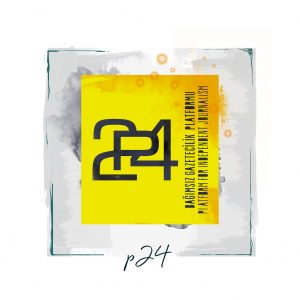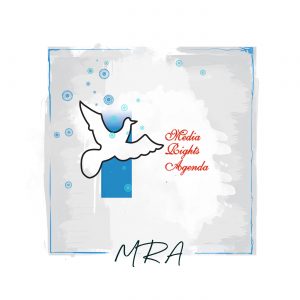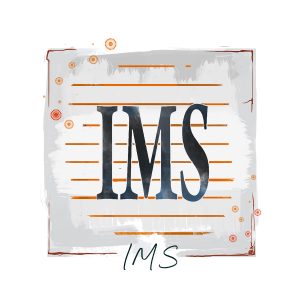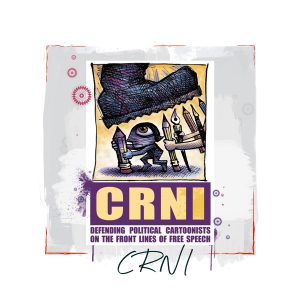14 Mar 2019 | Awards, News and features
[vc_row][vc_column][vc_video link=”https://youtu.be/AYDg8H16K0s”][vc_column_text] P24 (Platform for Independent Journalism) is a civil society organisation with an ambitious program to neutralise censorship in Turkey — a country in which speaking freely courts fines, arrest and lengthy jail sentences.
P24 (Platform for Independent Journalism) is a civil society organisation with an ambitious program to neutralise censorship in Turkey — a country in which speaking freely courts fines, arrest and lengthy jail sentences.
Turkey has become increasingly hostile to dissent in recent years. It recently replaced the emergency rule that started after the 2016 failed putsch with a presidential system in which executive powers are often unchecked. The country is the world’s largest jailer of journalists: some 183 journalists and media workers are in prison at the time of writing, including many in pre-trial detention.
But journalists are not the only ones in danger: academics, artists and ordinary Turks expressing dissent have faced legal sanctions, economic pressure, and even arrests. In a famous case, a woman was detained after being overheard criticising the Turkish president – while talking to a friend on a bus. Even some of P24’s workers have been detained, although not for their work with the organisation.
What makes P24 impressive is that it has been able to mount an ambitious programme even in such a high-risk environment, providing a glimmer of hope for civil society in Turkey. It has created a set of mutually reinforcing activities to promote free expression and fight to fill the democratic deficit.
Its legal team defends journalists and academics who are on trial because they exercised their right to free expression. P24 does its legal work on a pro bono basis, hoping to set important precedents in the Turkish legal system.
P24 also undertakes coordinated social media and public advocacy that include live-tweeting from courtrooms and campaigning through an array of websites, newsletters and exhibition spaces. One of its efforts — Expression Interrupted – is a website and newsletter tracking the progress of freedom of expression cases throughout the country.
P24 also provides safe spaces for freedom of expression. Susma24 is an outreach programme in which it brings together local bar associations and artistic communities. Through K24 and KIRAATHANE, its newly launched literature house, P24 also offers freelance opportunities and visibility to those excluded from the mainstream by the government’s ongoing stifling of dissent.
P24, one of Turkey’s most active civil society organisations secured the release of a young photographer, Cağdaş Erdoğan. While Erdoğan has been able to exhibit in Europe, no Turkish gallery wanted to show his photography – so P24 organised an exhibition in its new Literature House “KIRAATHANE”, one of its latest initiatives. In 2018, P24 also published three books on journalism, innovation and media freedom in its media library.[/vc_column_text][vc_separator][vc_row_inner][vc_column_inner width=”1/2″][vc_single_image image=”104691″ img_size=”full” onclick=”custom_link” link=”https://www.indexoncensorship.org/2019/01/awards-2019/”][/vc_column_inner][vc_column_inner width=”1/2″][vc_column_text]
Index on Censorship’s Freedom of Expression Awards exist to celebrate individuals or groups who have had a significant impact fighting censorship anywhere in the world.[/vc_column_text][/vc_column_inner][/vc_row_inner][vc_separator][/vc_column][/vc_row][vc_row][vc_column][vc_basic_grid post_type=”post” max_items=”4″ element_width=”6″ grid_id=”vc_gid:1552057651002-8eabcc7d-44fd-4″ taxonomies=”26925″][/vc_column][/vc_row]
13 Mar 2019 | Awards, News and features
[vc_row][vc_column][vc_video link=”https://youtu.be/2DupMR8Kao8″][vc_column_text] Media Rights Agenda (MRA) is a non-profit organisation that has spent the last two decades working to improve media freedom and freedom of expression in Nigeria by challenging the government in courts.
Media Rights Agenda (MRA) is a non-profit organisation that has spent the last two decades working to improve media freedom and freedom of expression in Nigeria by challenging the government in courts.
While the 1999 Constitution of the Federal Republic of Nigeria guarantees the right to freedom of expression, other laws – including the sections of the Criminal Code, the Cybercrimes Act and the Official Secrets Act – limit and even criminalise expression.
Through its active legal team, MRA has initiated strategic litigation targeting dozens of institutions, politicians and officials with the aim of improving the country’s legal framework around media freedom. Its persistent campaigning and lawsuits around freedom of information have helped improve access to government-held data.
A notable example is MRA’s work on Nigeria’s Freedom of Information Act. The organisation campaigned for over a decade to ensure Nigeria adopted its own FOI Act, and even wrote a draft of the bill. Although an FOI act was finally passed, many states and institutions are not complying with the new law.
So far, the organisation has found 66 institutions and two judges that still fail to comply with the act – and has named, shamed and at times sued them. It continues to have many active court cases against government officials and institutions over over the application of the act.
MRA has since also provided pro bono legal services to journalists, including FOI litigation to implement the act, and FOI training to over 2,000 journalists and organisations.
MRA also draws attention to attacks on journalists and the media through its website.
MRA and its partners are also currently challenging the repressive provisions of Nigeria’s Cybercrimes Act, and the case is currently pending at the Nigerian Supreme Court. The Section 24 of the 2015 law has been used by the country’s politicians to accuse journalists of cyberstalking for the publication of critical articles.
At the continental level, MRA was among the organisations that campaigned against internet shutdowns in Africa. The campaign resulted in a resolution by the African Commission on Human and People’s Rights affirming the rights of all Africans to free expression online.
MRA was also one of the organisations that worked to develop the African Declaration on Internet Rights and Freedoms and the African Platform on Access to Information (APAI) Declaration. [/vc_column_text][vc_separator][vc_row_inner][vc_column_inner width=”1/2″][vc_single_image image=”104691″ img_size=”full” onclick=”custom_link” link=”https://www.indexoncensorship.org/2019/01/awards-2019/”][/vc_column_inner][vc_column_inner width=”1/2″][vc_column_text]
Index on Censorship’s Freedom of Expression Awards exist to celebrate individuals or groups who have had a significant impact fighting censorship anywhere in the world.[/vc_column_text][/vc_column_inner][/vc_row_inner][vc_separator][/vc_column][/vc_row][vc_row][vc_column][vc_basic_grid post_type=”post” max_items=”4″ element_width=”6″ grid_id=”vc_gid:1552057575584-da476382-369c-6″ taxonomies=”26925″][/vc_column][/vc_row]
12 Mar 2019 | Awards, News and features
[vc_row][vc_column][vc_video link=”https://youtu.be/afHCcOfrBSY”][vc_column_text] The Institute for Media and Society (IMS) is a Nigerian NGO that is going to great lengths to improve the country’s media landscape by challenging government regulation and fostering the creation of community radio stations in rural areas at a time when local journalism globally is under threat.
The Institute for Media and Society (IMS) is a Nigerian NGO that is going to great lengths to improve the country’s media landscape by challenging government regulation and fostering the creation of community radio stations in rural areas at a time when local journalism globally is under threat.
IMS’s approach combines advocacy to repeal legal restrictions and practical action to encourage Nigerians to use their voices. IMS studies the legal framework in which Nigerian media operate, and pressures the government to act on their recommendations. It also uses its expertise to stimulate bottom-up changes in the national media landscape by encouraging Nigerians to develop their own media outlets.
IMS reports that 75% of television and radio stations in Nigeria are owned by politicians, and as a result they are divided along political lines, while rural communities are increasingly marginalised.
As the headquarters of the Nigerian Community Radio Coalition, IMS advocated for under reported communities to start their own radio stations, and in 2015, this led to the licensing of 17 community radio stations. Many of these outlets have since evolved into solid platforms that champion community development, transparency in governance and accountability.
In its advocacy work, IMS lobbies the government and the National Assembly to reform the country’s legal framework. In one of its latest battles, IMS has been advocating for the independence of the Nigerian Broadcasting Commission, the agency that regulates the country’s broadcast media, from ongoing governmental interference – a major impediment to freedom of expression.
Through its website, IMS also monitors Nigerian media and tracks violations of the rights of journalists. Their work draws attention to an increasingly hostile environment. The last few years have seen murders, arrests and threats against journalists.
One of IMS’s success stories in 2018 was its opposition of the ‘Nigerian Press Council Bill 2018’, which critics contended was not only draconian and unconstitutional, but would have also criminalised journalism practice. The bill was withdrawn from consideration by the National Assembly.
IMS also successfully lobbied the NBC for reducing community radio license fees from N500,000 to N200,000, and is advocating for their complete removal. [/vc_column_text][vc_separator][vc_row_inner][vc_column_inner width=”1/2″][vc_single_image image=”104691″ img_size=”full” onclick=”custom_link” link=”https://www.indexoncensorship.org/2019/01/awards-2019/”][/vc_column_inner][vc_column_inner width=”1/2″][vc_column_text]
Index on Censorship’s Freedom of Expression Awards exist to celebrate individuals or groups who have had a significant impact fighting censorship anywhere in the world.[/vc_column_text][/vc_column_inner][/vc_row_inner][vc_separator][/vc_column][/vc_row][vc_row][vc_column][vc_basic_grid post_type=”post” max_items=”4″ element_width=”6″ grid_id=”vc_gid:1552321469663-a73739a4-7337-9″ taxonomies=”26925″][/vc_column][/vc_row]
11 Mar 2019 | Awards, News and features
[vc_row][vc_column][vc_video link=”https://youtu.be/UOjkQdP9AlM”][vc_column_text] Cartoonists Rights Network International (CRNI) is a small organisation with a big impact: monitoring threats and abuses against editorial cartoonists worldwide. It is a lifeline for cartoonists in danger across the world. Despite the organisation’s limited size, resources and capacity, it is able to marshall an impressive network to focus international attention on cases in which cartoonists are persecuted and put pressure on the persecutors.
Cartoonists Rights Network International (CRNI) is a small organisation with a big impact: monitoring threats and abuses against editorial cartoonists worldwide. It is a lifeline for cartoonists in danger across the world. Despite the organisation’s limited size, resources and capacity, it is able to marshall an impressive network to focus international attention on cases in which cartoonists are persecuted and put pressure on the persecutors.
The network was instrumental in the release of graphic novelist Ramón Nsé Esono Ebalé who was imprisoned in Equatorial Guinea on bogus counterfeiting charges because of his criticism of the country’s president and government.
CRNI tracks censorship, fines, penalties and physical intimidation (including of family members), assault, imprisonment, and even assassinations. Once a threat is detected, CRNI often partners with other human rights organisations to maximise the pressure and impact of a campaign to protect the cartoonist and confront those who seek to censor political cartoonists.
Cartoonists are frequently targeted by authoritarian governments and lack the protection offered by unions or large media organisations, therefore external support is crucial.
CRNI participated in the campaign to assist Malaysian cartoonist Zunar, accused of sedition on nine counts and subjected to a travel ban. The charges were dropped in July 2018. They helped Nikahang Kowsar leave Iran after a prison sentence and resettle his family in North America.
Others supported include American cartoonist Jake Thrasher, for whom they raised awareness of his work when he was received death threats and homophobic abuse. It helped Tony Namate, Zimbabwe, who then faced personal threats by pro-Mugabe thugs and loss of income after his employer was forced into closure by government court action.
Another way CRNI helps cartoonists’ free expression is through its yearly Courage in Editorial Cartooning Award. Receiving the award brings international attention to a cartoonist’s work, grows his or her readership, and thus reduces the amount of pressure he or she is subject to.
CRNI has also helped fund the 2017 gathering of cartoonists in Cape Town, South Africa, facilitated by Africartoons, where personal safety and survival strategy in response to hostile working environments were discussed.
In 2018, CRNI was instrumental in the release of graphic novelist Ramón Nsé Esono Ebalé. CRNI also campaigned for the the release of Ali Dorani, aka Eaten Fish, from the “regional processing centre” on Manus Island, Papua New Guinea, and raised his case with ICORN who were in turn able to facilitate refuge for him in Norway.[/vc_column_text][vc_separator][vc_row_inner][vc_column_inner width=”1/2″][vc_single_image image=”104691″ img_size=”full” onclick=”custom_link” link=”https://www.indexoncensorship.org/2019/01/awards-2019/”][/vc_column_inner][vc_column_inner width=”1/2″][vc_column_text]
Index on Censorship’s Freedom of Expression Awards exist to celebrate individuals or groups who have had a significant impact fighting censorship anywhere in the world.[/vc_column_text][/vc_column_inner][/vc_row_inner][vc_separator][/vc_column][/vc_row][vc_row][vc_column][vc_basic_grid post_type=”post” max_items=”4″ element_width=”6″ grid_id=”vc_gid:1564482583396-aed50c86-f27d-9″ taxonomies=”26925″][/vc_column][/vc_row]
 P24 (Platform for Independent Journalism) is a civil society organisation with an ambitious program to neutralise censorship in Turkey — a country in which speaking freely courts fines, arrest and lengthy jail sentences.
P24 (Platform for Independent Journalism) is a civil society organisation with an ambitious program to neutralise censorship in Turkey — a country in which speaking freely courts fines, arrest and lengthy jail sentences. 
 Media Rights Agenda (MRA) is a non-profit organisation that has spent the last two decades working to improve media freedom and freedom of expression in Nigeria by challenging the government in courts.
Media Rights Agenda (MRA) is a non-profit organisation that has spent the last two decades working to improve media freedom and freedom of expression in Nigeria by challenging the government in courts. The Institute for Media and Society (IMS) is a Nigerian NGO that is going to great lengths to improve the country’s media landscape by challenging government regulation and fostering the creation of community radio stations in rural areas at a time when local journalism globally is under threat.
The Institute for Media and Society (IMS) is a Nigerian NGO that is going to great lengths to improve the country’s media landscape by challenging government regulation and fostering the creation of community radio stations in rural areas at a time when local journalism globally is under threat. Cartoonists Rights Network International (CRNI) is a small organisation with a big impact: monitoring threats and abuses against editorial cartoonists worldwide. It is a lifeline for cartoonists in danger across the world. Despite the organisation’s limited size, resources and capacity, it is able to marshall an impressive network to focus international attention on cases in which cartoonists are persecuted and put pressure on the persecutors.
Cartoonists Rights Network International (CRNI) is a small organisation with a big impact: monitoring threats and abuses against editorial cartoonists worldwide. It is a lifeline for cartoonists in danger across the world. Despite the organisation’s limited size, resources and capacity, it is able to marshall an impressive network to focus international attention on cases in which cartoonists are persecuted and put pressure on the persecutors.